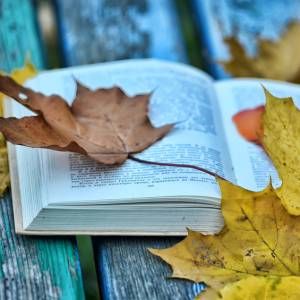
Riot Round-Up: The Best Books We Read In November
We asked our contributors to share the best book they read this month. We’ve got fiction, nonfiction, YA, and much, much more. Some are old, some are new, and some aren’t even out yet. Enjoy and tell us about the highlight of your reading month in the comments.
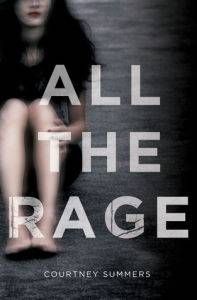 All the Rage by Courtney Summers (St. Martins, April 24, 2015)
All the Rage by Courtney Summers (St. Martins, April 24, 2015)
Gritty, tough realistic YA fiction is my jam, and Courtney Summers never fails to deliver. All the Rage is a story about rape culture and about how one girl can become the most hated person in town, when she speaks up about the town’s golden boy being a rapist. This is a feminist novel that doesn’t shy away from the hard truths and rough edges about being a girl. It’s a book about girls taking back what’s rightfully theirs: their voices, their bodies, and their place in society as people. The topic is timely and timeless and the writing is a gut-punch. Summers takes no shortcuts here. — Kelly Jensen
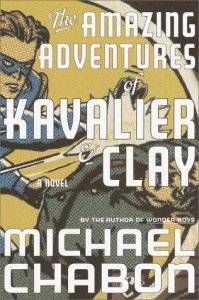 The Amazing Adventures of Kavalier & Clay by Michael Chabon
The Amazing Adventures of Kavalier & Clay by Michael Chabon
I’m not a fan of war-centric novels, and I’m not hugely into comic books – although I can usually work my way through the former and find the latter really cool. Chabon’s tale of two Jewish cousins, one escaped from Nazi-infested Prague, the other from boring old life in Brooklyn NY, has me laughing, crying, and wishing for more comic book knowledge so I could get all the references to the early Superman, Batman, pulpy stuff. Sam and Joe have a dream to be The Next Big comic book writers, bring their families into safety and comfortable living, and get the girls of their dreams – and by gosh, they just might do it. That’s what I like about a Chabon: yes, the characters might be down on their luck, but he seems to live by the idea that if you’re good people, good things will happen to you. Plus, I will never tire of his long, involved, rich wink-wink sentences. BAM! POW! Just good reading. — Alison Peters
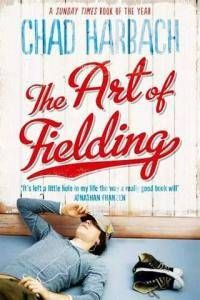 The Art of Fielding by Chad Harbach
The Art of Fielding by Chad Harbach
What is it about baseball that so excites American writers? I can’t think of any other sport, aside from maybe boxing, that can be so closely entwined with so many great books. Harbach’s debut novel is another of them, and in several passages he communes with his baseball-loving literary predecessors (Delillo, Irving, Roth et al) in summing up the meditative, almost spiritual dimensions of the game. Throw in its college campus setting, taboo relationships fracturing families, and references to Moby-Dick running through it like a seam of meaty whale blubber, The Art of Fielding has loaded the bases in the inning sponsored by the Great American Novel. It should feel cynically assembled but Harbach gives his characters both heart and soul. They are both plucky and bruised, capable of heroics and failing utterly. The Art of Fielding pretty much knocks it out of the park. — Edd McCracken
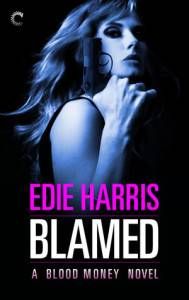 Blamed by Edie Harris
Blamed by Edie Harris
I’ve been trying to get more into romantic suspense lately. It’s not a bad genre; I just haven’t found anything that’s really knocked my socks off. But this book…THIS BOOK, MAN! The story jumps around from different moments in the past few years, but it opens with the heroine being tortured. The hero and heroine are spies and they’ll frequently make references to certain things – the first time they met in the field, their first kiss, etc. But it’s heartbreaking because you know that, somewhere along the line, something goes horribly wrong. It kept me engaged the whole way through and, while the second book seems to feature a heroine that I wound up hating in this book, I’m interested in seeing how the author will try and change my mind about her. — Amanda Diehl
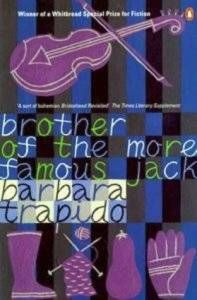 Brother of the More Famous Jack by Barbara Trapido
Brother of the More Famous Jack by Barbara Trapido
Economical and endlessly witty, this novel might be the best of 1982 and 2014 at the same time. First published back when New Wave was new, it won a Whitbread Special Award in the UK, but didn’t find traction in the US at the time, which is a crying shame, because a whole generation of readers either missed it entirely or had to wait until they were old and gray to discover it. It’s not too late, though. You owe it to yourself to take a chance on this dramedy of manners, starring a legitimately intelligent heroine named Katherine, a student who falls in love with her professor’s entire family. She moves from naivete to maturity, from Swinging London to Rome and back, and her journey is both hilarious and moving. If Austen had lived through the era of diaphragms and miniskirts, this is a book she might have written. — James Crossley
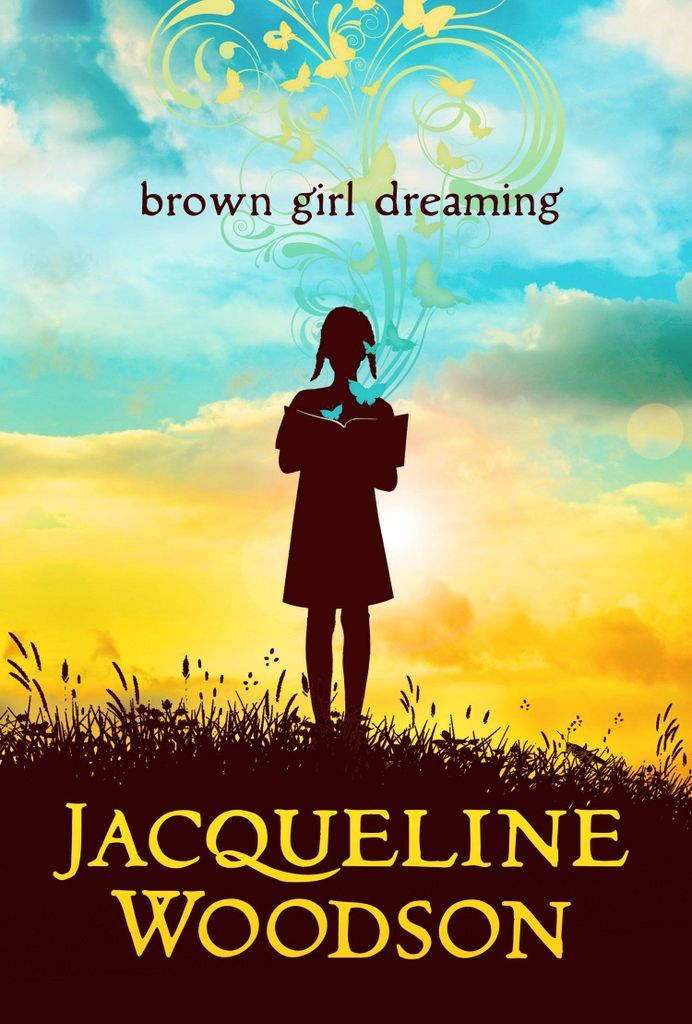 Brown Girl Dreaming by Jacqueline Woodson
Brown Girl Dreaming by Jacqueline Woodson
I picked this up in a fit of book-rage after Daniel Handler’s racist remarks to Woodson at the National Book Awards, and while I hate the reasons why I bought it, I’m so glad I did. Woodson deserves every centimeter of that award. This middle grade memoir in verse is unlike anything I’ve ever read. It follows Woodson through her childhood in the 60s and 70s in both South Carolina and New York, and is one of the few books (for children or otherwise) I’ve read that really get at the otherness of being both brown and a girl in the South. Brown Girl Dreaming is about finding your voice, and it is important and great (and I don’t mean great as a synonym for good here, I mean it like how people mean it when they describe great men or great works of art or great acts of valor). -Amanda Nelson
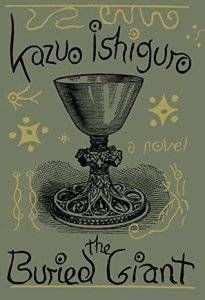 The Buried Giant by Kazuo Ishiguro (Knopf, March 3, 2015)
The Buried Giant by Kazuo Ishiguro (Knopf, March 3, 2015)
We’ve been waiting for Ishiguro’s new novel for 10 years, so it was hard not to gobble up this novel (out in March) in one sitting. Ishiguro immediately draws the reader into the narrative, provoking questions and making the reader wonder what in the WORLD is going on. It’s well done, leaving questions that linger long after the last pages are turned. You can bet I’ll be reading this one again soon. — Swapna Krishna
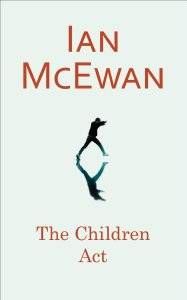 The Children Act by Ian McEwan
The Children Act by Ian McEwan
The Children Act is the story of a family court judge presiding over the case of a seventeen-year-old boy who is refusing a life-saving blood transfusion on religious grounds. From a lesser writer I would expect a plot like this to conclude with some kind of explicit moral opinion veiled in not-so-nuanced nuance, but of course this is Ian McEwan so the message is not that obvious. It’s beautifully written and at a little more than two hundred pages it’s the perfect length for a [somewhat sobering] weekend read. — Kate Scott
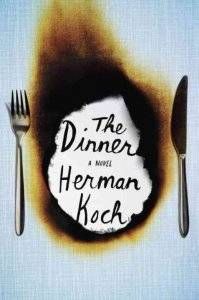 The Dinner by Herman Koch
The Dinner by Herman Koch
When I read this book, I imagined it being read by Tom Selleck. That’s not to say that I imagined the narrator as Tom Selleck, but that the tone somehow had to somber, mustached timbre to it. Over the course of one lengthy dinner Koch manages to unravel the lifetime of a family plagued by violence. There’s something terrifying about the way in which this novel approaches heated social and political issues with a juxtaposed calmness, and at points it will seem maddening that one family can brush such a monstrous cache of secrets under the rug. Also, the menu motif is delightful. By the time you reach the digestif, you’ll need one. — Aram Mrjoian
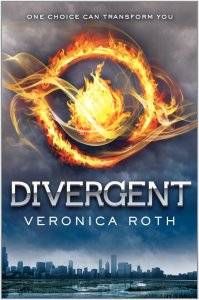 Divergent by Veronica Roth
Divergent by Veronica Roth
I know I’m suuuper late to this party, but trust me when I say Divergent totally lives up to all the hype. It’s more than a YA or dystopian novel–it’s a coming of age story about how the choices we make are what define us, not our family or jobs or the groups we’re stereotyped into. If you saw the movie, it follows the book pretty closely, except the novel is better because: 1. it’s a book (duh), and 2. the secondary characters are much better realized, ESPECIALLY Four (love him). I also adored getting into Tris’s head and thought that really helped flesh out the themes of fear and loyalty that were in the film. Roth has an absolutely amazing ability to tell a story and make me stay up really way too late reading. You were right again, bookternet! — Tasha Brandstatter
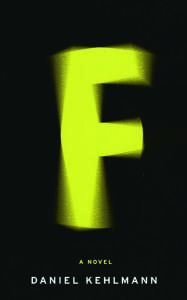 F by Daniel Kehlmann
F by Daniel Kehlmann
This was my first Kehlmann novel, but it certainly won’t be my last. In this story of a father and his three sons, Kehlmann explores fascinating questions about the point of art, the nature of beauty, and the ways in which we all perform roles for our families and friends. When Arthur Friedland, inspired by a hypnotist, abandons his family and sets out to become a successful writer, his sons grow up to follow ultimately destructive paths. Kehlmann invites us to think about how one generation influences the next, and how fate often hinges on a single, unexpected event. — Rachel Cordasco
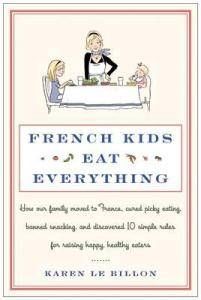 French Kids Eat Everything by Karen LeBillon
French Kids Eat Everything by Karen LeBillon
You know when you read a book, and every chapter or so, you have to turn to your spouse, urge them to read the book, and then tell them everything that you just read? That’s how this book was. I’m always fascinated by how different cultures approach food, and since the French do it oh-so-well, I was interested in learning more about how they build a culture around food. French Kids Eat Everything approaches it from an outsider’s point of view, a woman who moves to France with her French husband, to the village where he grew up, with their two young daughters. Her struggle with (and eventual warming to) French food culture was comical, paradigm shifting, and gave me a lot to think about for my own life and how I, as an adult, approach food. — Dana Staves
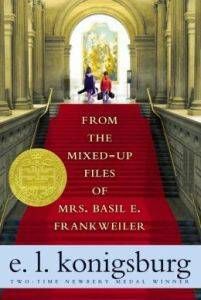 From The Mixed Up Files of Mrs. Basil E. Frankweiler by E. L. Konigsburg
From The Mixed Up Files of Mrs. Basil E. Frankweiler by E. L. Konigsburg
I’ve been lying to people by omission for years. As a bookseller I’ve handsold From the Mixed-Up Files possibly hundreds of times, but until this month I’d never read it. It wasn’t on purpose! I missed large chunks of children’s literature, and I’m not sure whether to blame my parents or my own unwillingness to read what I considered “kiddie books”; we can talk about how I hadn’t read The Phantom Tollbooth until the age of 28 another time. Anyway! The point is, this book is just as fantastic as I’ve been telling people it is. If you ever dreamed of running away; if you ever went hunting for treasures and secrets; if you ever wished you could spend a night in a museum; this book is for you. Give it to grown-ups who haven’t read it, and kids who need to read it — which is every kid. — Jenn Northington
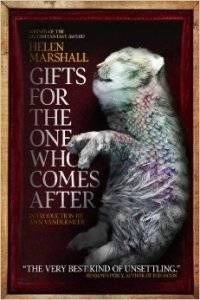 Gifts for the One Who Comes After by Helen Marshall
Gifts for the One Who Comes After by Helen Marshall
This year has been a year of genre short story anthologies for me and this one, by Helen Marshall, is one my favorites so far. It starts of very well, with two deliciously creepy stories, one of which, “Secondhand Magic,” is amongst my favorite short stories of the year. Helen writes very well and there is a sense of hope and love amidst all the darkness in her stories. Some of the stories (I’m thinking specifically of “The Gallery of the Eliminated”) veer into outright horror, which is perhaps not a bad thing, but worth mentioning. But overall, the stories are simply wonderful tales of modern fantasy. Highly recommended for all fans of darker fiction. — Johann Thorsson
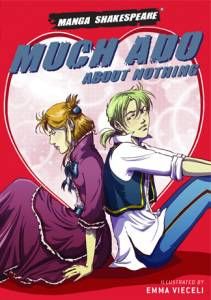 Manga Shakespeare’s Much Ado About Nothing by William Shakespeare
Manga Shakespeare’s Much Ado About Nothing by William Shakespeare
The Manga Shakespeare series takes William Shakespeare’s, slightly abridged, original texts and, with beautiful manga style illustrations, transforms these plays into graphic novels. The humour in Much Ado About Nothing was still enough to make me laugh out loud on the train four hundred years after the jokes were written. Already a huge fan of Shakespeare’s work, I love the way that this format makes these works all the more fun and accessible. — Rah Carter
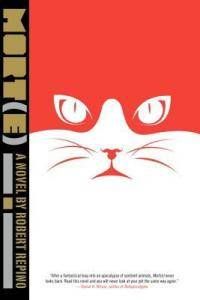 Mort(e) by Robert Reprino (Soho Press, Jan 2015)
Mort(e) by Robert Reprino (Soho Press, Jan 2015)
I’ll be honest with you. When I first heard the premise for Mort(e), I was a little skeptical. Ants take over the world, and are exterminating people? And then they make animals self aware, and those creatures also join in the fight? And the protagonist is an intelligent, battle hardened warrior named Mort(e), on a quest to find his closest friend, a dog named Sheba?
Let me tell you, skeptical readers. This book is absolutely incredible, and like no piece of science fiction I’ve ever read. The apocalypse has never, ever been this entertaining. As Reprino takes you through the story, and introduces you to the various beasts that Mort(e) meets in his adventures, you get these incredible, powerful glimpses of this shattered world… and it is as awe inspiring as it is heartbreaking.
I’m going to be talking about this book all next year, when it finally comes out with Soho Press. The story continues to haunt me, long after I stopped reading it. — Eric Smith
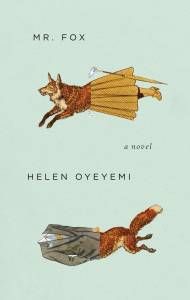 Mr. Fox by Helen Oyeyemi
Mr. Fox by Helen Oyeyemi
Calling Mr. Fox a retelling of Bluebeard is like calling Frankenstein’s monster a rag doll. Oyeyemi does use the folk tale as a starting point, but then tears it apart and rebuilds it into something that roars with new life and is both beautiful and terrifying. The basic premise is that an author with a penchant for killing off his female protagonists is confronted by his muse about his murderous (if fictional) tendencies. The two then enter into a postmodern tete-a-tete that weaves in and out of a series of interlocking stories. If that sounds like an overly clever conceit, don’t forget that you are in good hands: Oyeyemi is a straight-up wizard. She uses this unusual narrative structure to conjure a number of deeper themes, including the power of voice (as well as the denial of voice), and how language can both perpetuate violence and offer a path to redemption. Like the Bluebeard myth, you never know what Oyeyemi has waiting for you behind each door… but you can’t resist finding out. — Minh Le
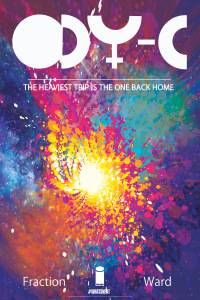 Ody-C #1 by Matt Fraction and Christian Ward
Ody-C #1 by Matt Fraction and Christian Ward
The first issue in a gender-swapped retelling of The Odyssey as a space opera. Not to be overly brief, but I kind of feel that that says it all. Well, and this: the art is GORGEOUS. — Jeanette Solomon
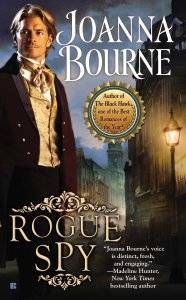 Rogue Spy by Joanna Bourne
Rogue Spy by Joanna Bourne
I’ve enjoyed plenty of romance fiction lately, but I was starting to worry that my days of having my socks knocked off by one were long past. Then I picked up Rogue Spy, the fifth in Bourne’s series set among spies in England and France after the Revolution. As children, Cami and Pax were fellow cachés — children trained to spy and kill for France. They meet again as adults in London on seemingly opposite political sides, revealing their complex motivations as they become close. Their shared brutal past is a source of both painful memories and deep comfort. It’s beautifully written, and no less heartbreakingly romantic for the unusually long time the Cami and Pax spend apart in the first chapters. Suspenseful, smart, tender, and passionate, the pages of Rogue Spy contain every reason I read romance. — Jessica Tripler
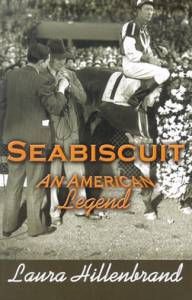 Seabiscuit by Laura Hillenbrand
Seabiscuit by Laura Hillenbrand
I’m a million years behind reading this book, but I’m glad I finally did. Seabiscuit is the story of an unlikely trio of men — an auto tycoon, a middling jockey, and a mysterious trainer — who unite behind an unlikely horse who turned into one of the greatest racers of all time. Hillenbrand is amazing a building characters and selecting details that illuminate who they were and what they most cared about. It was such a great story, and Hillenbrand told it so well. — Kim Ukura
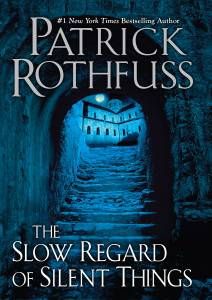 The Slow Regard of Silent Things by Patrick Rothfuss
The Slow Regard of Silent Things by Patrick Rothfuss
If you’re like every other Rothfuss reader and have devoured The Name of the Wind and The Wise Man’s Fear several times over, then The Slow Regard of Silent Things is the perfect morsel of literature to chew on while awaiting the final book in The Kingkiller Chronicles.
Rothfuss’s novella departs from the tale of Kvothe, and instead follows Auri, the mysterious, young woman who lives beneath the University. What follows next is the slow unfolding of a flower, opening to the sun. Auri is not like everyone else. She is incredibly observant, kind to every single thing around her, (unless it is unkind back to her), and meticulous in her affairs; not a thing in any room may be out of place, and she cannot leave without giving every piece, item, trinket, and knick-knack a purpose. She is mindful of the moon, respectful of the dark, and wary of the world above. And she has such love for the broken, young man who brings his music to her.
Auri is a fascinating character because she lives deliberately; something in her past has made her so, but she doesn’t fear it, she embraces it. And the reader embraces her as we join Auri in her quest to find a gift for Kvothe. It’s not your typical story, but Auri is not your typical character. With electric, lovely prose, Rothfuss gives us just a brief glimpse into Auri’s life, and what I found there was breath-taking, heart-breaking, and beautiful. — Martin Cahill
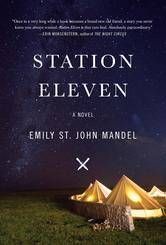 Station Eleven by Emily St. John Mandel
Station Eleven by Emily St. John Mandel
This was technically my last October read and first November one. I sat down Halloween night to read a few chapters and this book rocked my fucking socks off. I loved it. Stayed up until 1 AM just to finish it in one go. It’s a terrifyingly beautiful book about a world destroyed from a superflu and how humanity continues in the decades that follow. The pacing is superb, the characters so real and lovely, and the unexpected brilliance in the midst of tragedy just knocked me out. — Nikki Steele
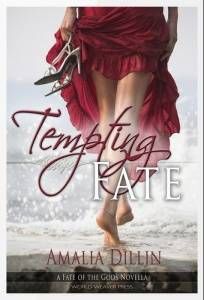 Tempting Fate by Amalia Dillin
Tempting Fate by Amalia Dillin
This novella is bite-sized but oh-so-satisfying. It really rang a lot of my bells, to borrow a phrase from Rebecca, with the mix of romance, changing perspectives, and mythology. I read this during my breaks at work and managed to get through it before it was time for me to go home (I just got really into it). This novella is a “1.5” squeezed in between books in a series, but I didn’t find myself lost or anything having not read the other titles. If anything, it succeeded in making me want to pick up the proper first book. — Kristina Pino
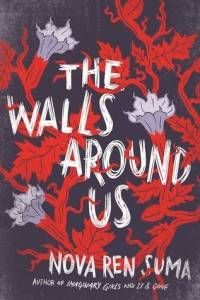 The Walls Around Us by Nova Ren Suma (Algonquin Young Readers, March 24, 2015)
The Walls Around Us by Nova Ren Suma (Algonquin Young Readers, March 24, 2015)
Holy cats, this book is so vivid and amazing, it practically moves in your hands! I read it without knowing anything about it except that I loved the cover (IT’S GORGEOUS) so I’ll try not to spoil too much of it for you. Here’s the deal: Two teenage girls – one alive, one dead – narrate this suspenseful tale of big dreams and dashed hopes, set among two extremely cutthroat environments: ballet and prison. (I’ve nicknamed it Black Swan Mean.) Violet is a ballerina with a huge secret on the verge of stardom; Amber is a prisoner in a juvenile detention center who no longer imagines ever getting out. What ties their stories together is the truth, simmering just below the surface, waiting to explode. And what a conclusion! It will rattle your teeth. — Liberty Hardy
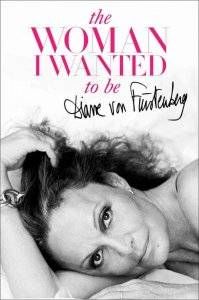 The Woman I Wanted To Be by Diane Von Furstenberg
The Woman I Wanted To Be by Diane Von Furstenberg
Look, I knew Diane was a fascinating woman, but I didn’t realize how candid she was prepared to be about her personal relationships, her family history, and her own shortcomings. The Woman I Wanted To Be is not a diatribe on how to be perfect like Diane, it’s an honest look back at the life and career of a woman who is multi-lingual, multi-continental, and multi-talented. If reading about a self-made female fashion tycoon who is also the daughter of an Auschwitz survivor, and is herself a cancer survivor, doesn’t sound inspiring to you, you might already be perfect. Or dead inside. Diane Von Furstenberg, former princess, has proved to be a timeless feminist icon and her memoir only solidifies that for me. — Brandi Bailey
____________________
The Book Riot Store is here! Get your favorite Book Riot t-shirts, bookish totes, and other literary swag to wear, share, and show off!
